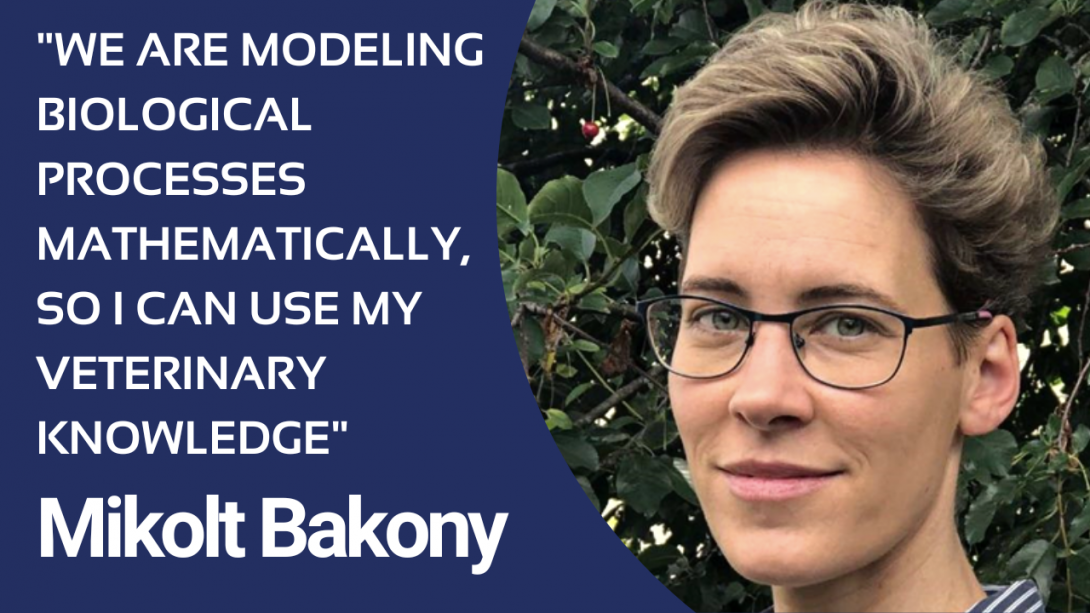
As a statistician, she supports the work of gynecology, urology, cardiology, and intensive therapy groups – still, she hasn't distanced herself from her original field, veterinary medicine. She also plans to apply the meta-analysis used in translational medicine in that territory. We spoke with Mikolt Bakony, who was named the best statistician of CTM in September.
By education, she is a veterinarian, but she became involved in the Centre for Translational Medicine's work as a biostatistician. Mikolt Bakony started showing interest in research after graduation, helping her husband, a research veterinarian. "I got involved in biostatistics when I started my doctoral studies at the University of Veterinary Medicine after the birth of our two children. It became clear that I had a passion for research, working alone, and solving problems. This might have been the reason why I felt, already in my second or third year as a graduate, that I could not do traditional veterinary work. However, I loved mathematics and biology, so it was obvious that I should be a biostatistician. I went to the Department of Biostatistics at the university and asked how I could become an expert in that field. They advised me to complete the mathematical training designed for biologists. I did that, and then started the applied biostatistics course, which had just started at the University of Veterinary Medicine."
After obtaining her biostatistics degree, Dr. Bakony remained at the university, teaching. Simultaneously, she pursued her doctoral studies, for which she prepared the statistics mostly herself. She also published many joint publications with her husband. She came into contact with the Centre for Translational Medicine after completing her PhD. "Initially I worked as a project coordinator, and later I started focusing on statistics. I was very happy about the opportunity because I am very interested in statistics. I mainly do analytical work and if necessary, I request extensions of data collection and research questions. We are trying to mathematically model biological processes, so I make great use of my veterinary degree here. My knowledge of biology and physiology is very useful, it helps me understand clinical issues and the researchers' objectives better. I can ask them questions that a conference attendee or reviewer might ask.
Dr. Bakony primarily supports the work of the gynecology and urology, cardiology, and intensive therapy groups as a statistician. Although she spends most of her time doing analysis and trying to improve in these areas, she is also interested in research in her field. "My PhD research involved animal welfare. I investigated how heat stress in calves of dairy cattle kept outdoors could be reduced. This topic was close to my heart and the results we published were eye-catching. There are farms in Hungary that have considered providing shade as a result of our study." Dr. Bakony also has research in the pipeline for publication. She aims to apply the meta-analysis used at the Centre for Translational Medicine to veterinary research as well.
(Emese Szabó)